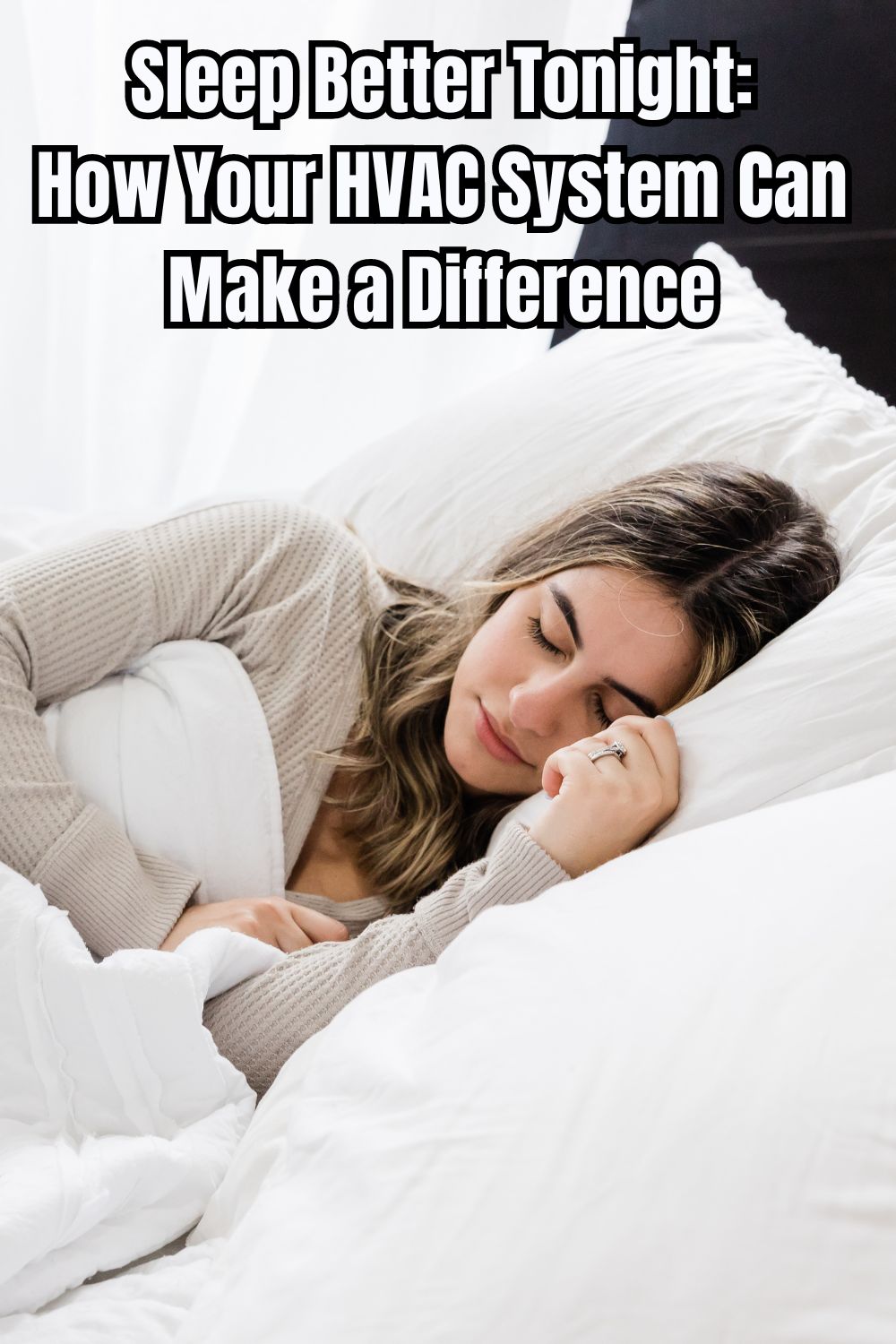Are you looking for ways to Sleep Better Tonight? Find out How Your HVAC System Can Make a Difference

Sleep Better Tonight: How Your HVAC System Can Make a Difference
Key Takeaways:
- Understanding the intricate link between HVAC systems and sleep quality can help create an ideal sleep environment.
- Temperature, humidity, and air quality are three critical components of your HVAC system that directly impact your sleep.
- Regular maintenance and intelligent use of your HVAC system can lead to a marked improvement in your sleep health.
Table of Contents:
- Introduction
- Creating the Ideal Temperature for Sleep
- Humidity Balance: A Crucial Element for Restful Sleep
- Breathing Easy: The Importance of Clean Air for Sleep
- Managing Noise Levels in Your Sleep Environment
- The Necessity of Regular HVAC Maintenance
- How Technology Aids in Optimal Sleep Conditions
- Lifestyle Tips for Enhanced Sleep Quality
- Conclusion
Introduction
It’s widely known that sleep is fundamental to good health, yet many of us struggle to get the rest we need. While various factors contribute to sleep quality, one often-ignored aspect is the role of our home’s HVAC system. We’ll examine how controlling your indoor climate can help you sleep better tonight and every night.
Creating the Ideal Temperature for Sleep
Our bodies naturally drop in temperature as they prepare for sleep. An environment conducive to this physiological change is vital. Ideally, bedrooms should be kept between 60 and 67 degrees Fahrenheit. A system’s ability to precisely manipulate room temperature is one way how HVAC system can affect sleep. If your system functions correctly, you can create an environment that supports these natural body temperature fluctuations for a sound slumber.
Humidity Balance: A Crucial Element for Restful Sleep
Too much humidity can leave you feeling hot and clammy, while too little can cause dry skin and irritation in the airways. The sweet spot for humidity lies between 30% and 50%. Your HVAC system plays a significant role in maintaining these levels, thus aiding in creating a sleep-friendly environment. Dehumidifiers or humidifiers can be integrated with your HVAC system to address these issues, ensuring that the air in your bedroom is neither too dry nor too moist. If your HVAC system is failing to maintain humidity, contact your Trane HVAC dealer.
Breathing Easy: The Importance of Clean Air for Sleep
The air quality in your bedroom can’t be seen but can certainly be felt. Allergens such as pollen or pet dander, as well as other pollutants, can cause respiratory discomfort that disrupts sleep. A well-maintained HVAC system with regularly changed filters can minimize these irritants. Furthermore, installing air purifiers and ensuring proper ventilation can create an allergen-free bedroom, paving the way for a night of uninterrupted sleep.
Managing Noise Levels in Your Sleep Environment
Noise is an enemy of deep sleep; surprisingly, an HVAC system can reduce noise or pollution within your home. Well-maintained systems tend to run smoother and quieter, reinforcing the tranquility of your sleep environment. Upgrades like sound-dampening insulation or anti-vibration mounts for HVAC units can also dramatically reduce disruptive sounds emanating from an aging system.
The Necessity of Regular HVAC Maintenance
Like any other significant investment in your home, your HVAC system requires periodic maintenance to operate efficiently. From changing filters to inspecting ductwork and servicing the central units, preventative maintenance not only extends the life of your system but also assures that it contributes positively to your sleep environment. Ignoring this essential care can improve air quality and maintain the delicate balance of temperature and humidity necessary for restful sleep.
How Technology Aids in Optimal Sleep Conditions
Advancements in home technology present new ways to enhance the bedroom for sleep. Smart thermostats can now be programmed to adjust temperatures incrementally through the night to match your sleep cycles, addressing overheating or excessive cooling issues. Other smart devices can monitor humidity levels and air quality, providing actionable insights to maintain the perfect sleep environment. Leveraging these technologies with your HVAC system can provide a high-tech solution to sleep better.
Lifestyle Tips for Enhanced Sleep Quality
While managing your HVAC system is crucial to your sleep quality, it should be complemented with good sleep hygiene practices. Establishing a regular sleep schedule, avoiding caffeine and heavy meals before bedtime, dimming the lights, and turning off screens an hour before you intend to sleep can reinforce your body’s environmental cues to shift into rest mode. These habits and an optimized HVAC system can transform your bedroom into the ultimate sleep-promoting sanctuary.
Conclusion
In summary, the pathway to better sleep may be through the thermostat. With a deeper understanding of the relationship between room conditions and sleep health, you can harness the power of your HVAC system to optimize your environment. Whether refining the temperature settings, balancing humidity, improving air quality, managing noise, or embracing innovative technology, your journey to a restful night’s sleep can begin with a few simple adjustments to your home’s climate control systems. So tonight, give yourself the gift of exceptional sleep by ensuring your HVAC system is set to support you.

Leave A Reply!